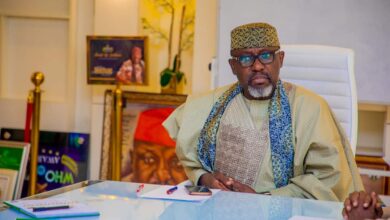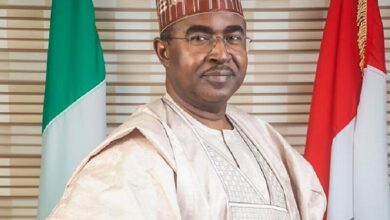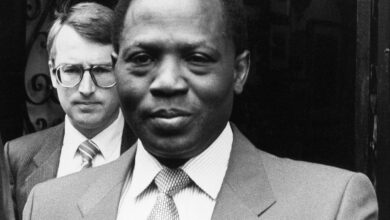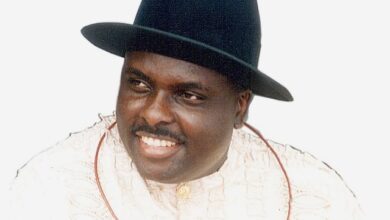20 Things You Should Know About Late M.K.O. Abiola
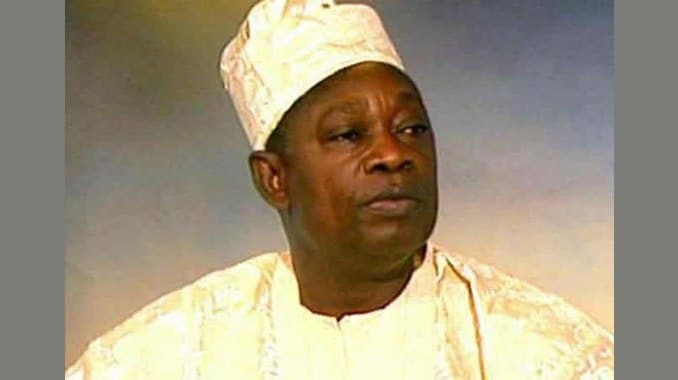
M.K.O. Abiola, a prominent figure in Nigerian history, was a politician, businessman, and philanthropist. His life was marked by his fight for democracy and human rights, making him a significant part of Nigeria’s struggle for a democratic government. Here are 20 essential facts about M.K.O. Abiola that you should know.
1. Early Life and Background
M.K.O. Abiola was born on August 24, 1937, in Abeokuta, Nigeria. He was the second of three children in a Muslim family and grew up in a modest environment that shaped his values and ambitions.
2. Education
Abiola attended the prestigious Christian Missionary Society (CMS) Grammar School in Lagos and later pursued further education at the University of Cambridge, where he studied mathematics and later moved to the United States for a business degree.
3. Business Ventures
Before venturing into politics, Abiola established himself as a successful businessman. He founded the Abiola Farms and other enterprises, becoming one of Nigeria’s wealthiest individuals and a major employer in the country.
4. Political Involvement
Abiola entered politics in the 1970s and became a member of the Nigerian National Congress. His political career gained momentum in the early 1990s when he ran for president.
5. Presidential Election of 1993
M.K.O. Abiola contested the June 12, 1993 presidential election under the platform of the Social Democratic Party (SDP). The election is widely regarded as one of the fairest in Nigeria’s history.
6. The Controversial Outcome
Abiola won the election with a significant margin, receiving approximately 58% of the votes. However, the military government, led by General Ibrahim Babangida, annulled the election, sparking widespread protests.
7. Advocacy for Democracy
Following the annulment of the election, Abiola became a symbol of the pro-democracy movement in Nigeria. He mobilized support from various groups and civil society organizations, advocating for the restoration of democratic governance.
8. Imprisonment
In 1994, Abiola was arrested and imprisoned by the Nigerian military government for declaring himself president. His imprisonment drew international condemnation and calls for his release.
9. International Support
Abiola received support from various international organizations and countries, including the United States and the United Kingdom, who called for his release and the restoration of democracy in Nigeria.
10. Health Struggles
While in detention, Abiola faced numerous health challenges. Reports indicated that he suffered from diabetes and other ailments, which were exacerbated by the harsh conditions of his imprisonment.
11. Release from Prison
Abiola was finally released from prison in 1998 after the death of General Sani Abacha, the military ruler. His release was met with celebrations across Nigeria, as many saw him as a hero of the democracy movement.
12. Return to Politics
After his release, Abiola attempted to return to politics and ran for president again in 1999, but he faced opposition and challenges that limited his political influence.
13. Legacy of Philanthropy
Throughout his life, Abiola was known for his philanthropic efforts, particularly in education and healthcare. He established the Abiola Foundation, which focused on improving the lives of Nigerians through various social programs.
14. Death
M.K.O. Abiola died on July 7, 1998, shortly after his release from prison. His death was surrounded by controversy, with many questioning the circumstances surrounding it, including the cause and timing.
15. National Honors
In 2018, Nigeria posthumously honored Abiola with the title of Grand Commander of the Federal Republic (GCFR), recognizing his contributions to the country and his role in the fight for democracy.
16. June 12 as Democracy Day
In 2018, the Nigerian government declared June 12 as Democracy Day, commemorating the day of the annulled 1993 elections and honoring Abiola’s legacy.
17. Influence on Modern Politics
Abiola’s life and struggle for democracy have inspired many contemporary Nigerian politicians and activists, shaping the country’s political landscape.
18. Cultural Impact
M.K.O. Abiola has been immortalized in Nigerian literature, music, and art, reflecting his significant impact on the nation’s cultural identity.
19. The Abiola Family
His family continues to play a prominent role in Nigerian society. His children and relatives are involved in various business, political, and philanthropic activities.
20. Continued Relevance
M.K.O. Abiola’s story remains relevant today, serving as a reminder of the ongoing struggles for democracy, justice, and human rights in Nigeria and beyond.
M.K.O. Abiola’s legacy is one of resilience, courage, and unwavering commitment to democracy. Understanding his life and contributions is crucial for appreciating Nigeria’s political history and the ongoing fight for civil rights in the country.

